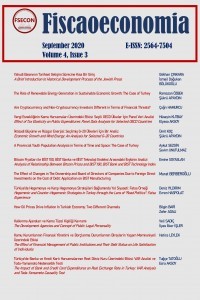
Fiscaoeconomia
Yazarlar: Reyhan KARABABA
Konular:Sosyal
DOI:10.25295/fsecon.2019.01.013
Anahtar Kelimeler:Welfare State,Public Finance,Social Policy,Cameralism,Ordoliberalism
Özet: Welfare state understanding of a country can be precisely delineated through reference to history shaping the relationship between state, market, society and family. Welfare capitalism considers families working-class and design social policies in this frame. Country-specific sociological and economic structure plays a role in the formation of social policies and public finance. For these reasons, German view of public finance, social welfare and policies from the 18th century to the present is discussed through three periods of history in which Cameralism, Weimar Welfare State and Ordoliberalism emerge. These periods are evaluated as the rings nested in each other of a system to reach a higher plane of capitalist achievement rather than chronological order of the events.